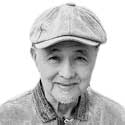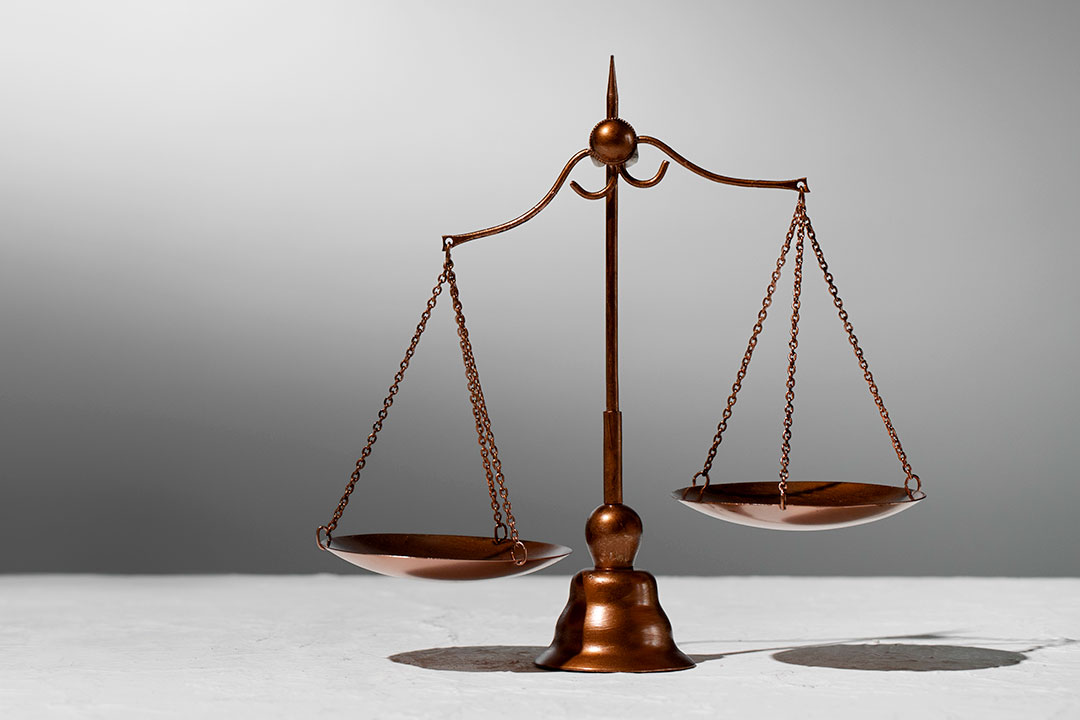
Musings
By Oscar P. Lagman, Jr.

In his Oct. 16 column in the Philippine Daily Inquirer, retired Chief Justice Artemio Panganiban wrote that unelected chief justices should be excluded from approval and performance surveys. He explains that “Under the rule of law,” jurists judge cases according to what is prescribed by law. Thus, a former president cannot be acquitted simply because of the influence of friends. Quite the contrary, he says justices decide according to what the law ordains, regardless of the powerful. Therefore, a chief justice should be excluded from popularity surveys because they are politically unknown.
I too am of the opinion that chief justices should be excluded from approval or satisfaction surveys, not for the reason given by the retired chief justice but for the reason that the great majority of the respondents do not know what the chief justice does.
Let me explain. Survey firms interview about 1,200 to 1,500 respondents picked at random from the Commission on Elections’ lists of voters. The respondents taken as a whole are referred to as the sample. Because they were picked at random, the 1,200 or so respondents or sample is supposed to be representative of the entire voting population of approximately 66 million. The random selection method used by the two major pollsters, Social Weather Stations (SWS) and Pulse Asia (PA), is in accordance with the generally accepted practice in the field of public opinion polling.
The Philippine Statistics Authority (PSA) breaks down the Philippine population into these socio-economic classes: 1% AB, 9% C, 60% D, and 30% E. If the respondents interviewed by survey firms are representative of the voting population, as they should be, they should also break down into the same economic classes as the entire Philippine population does. Thus, of the respondents interviewed by survey firms, 1% are from AB, 9% from C, 60% from D, and 30% from E.
SWS’s usual sample size is 1,200 respondents and PA’s is 1,500. That means of the 1,200 respondents of SWS, only 12 belong to Class AB, 108 to C, 720 to D, and 360 to E. PA’s 1,500 respondents break down into 15 AB, 135 C, 900 D, and 450 E.
The PSA generally describes the AB socio-economic class as the most affluent group whose homes and lifestyles reflect a disregard for economizing, the C class as the middle class whose homes and lifestyles indicate comfortable living, the D class as the lower class who basically thrive on a hand-to-mouth existence, and the E class as the extremely lower class who have great difficulty meeting their survival needs.
That makes me wonder on what the 1,000 plus respondents from the lower classes base their opinion on the performance of the chief justice. It can be safely said that based on their circumstances in life, the highest educational attainment of the respondents from the lower classes would be 2nd Year high school. Their access to information pertaining to governance cannot be through the print media as they would prefer to buy food than buy a newspaper. Their main source of information regarding the performance of government officials must be the free broadcast media. They need not own a radio or television set as there is always someone in the neighborhood who lets everybody within hearing distance listen to what is being aired on his radio or TV set.
What the chief justice does is not broadcast. Neither is it written about in newspapers nor in social media. Because what the chief justice does is so private, even those belonging to the AB socio-economic group do not know what the chief justice’s function is. Many do not even know who the chief justice is. And yet pollsters ask common folks to rate the performance of the chief justice.
The usual wording of the question asked in surveys about high-ranking government officials is as follows: “Are you very satisfied, somewhat satisfied, undecided if satisfied or dissatisfied, somewhat dissatisfied, very dissatisfied, or you have not ever heard or read anything about (name and position of the official) or (name of government institution)?”
The great majority of the respondents of public opinion surveys are not competent to pass judgment on the performances of public officials and government institutions because they do not have the relevant information. It is very likely that most respondents choose any one from possible answers presented them by the interviewer so as not to appear ignorant, or one they think would please the public official asked about.
For that reason, I am of the opinion that the vice-president, Senate president, speaker of the House of Representatives, the Cabinet, and the Supreme Court should also be excluded from approval and performance surveys.
The Constitution does not say what the duties and responsibilities of the vice-president are. What it says is that “In case of death, permanent disability, removal from office or resignation of the President, the vice-president shall become the President to serve the unexpired term.” Unless the vice-president becomes president, he or she has no function to perform. Survey respondents therefore have no basis by which to rate his or her performance.
True, except for Vice-President Leni Robredo, vice-presidents are given Cabinet positions. Public opinion pollsters should ask respondents if they approve or disapprove of the performance of the vice-president not as vice-president but as head of the government agency he or she administers.
As regards the president of the Senate and the speaker of the House, the great majority of respondents do not know what the Senate president and the speaker do as such. The same may be said about the Cabinet and the Supreme Court. Because of their personal circumstances, respondents belonging to the lower income groups do not know what associate justices of the Supreme Court do collectively. And so it is with regard to what the members of the Cabinet do collectively. Yet, both the Supreme Court and the Cabinet get satisfaction ratings from 50% of the respondents.
This situation comes about because of the way the surveys are conducted. The respondents are asked this question:
Based on their overall performance, how do you feel about the performance of the following government institutions? Are you Very satisfied, Somewhat satisfied, Undecided if satisfied or not, Somewhat dissatisfied, Very dissatisfied or You have never heard or read anything about (institution)? You may indicate your answer by placing each card on the appropriate answer on this rating board.
The respondent merely guesses which is the right or safe answer.
Now let me comment on the reason given by the retired chief justice as to why chief justices and the Supreme Court should be excluded from public opinion surveys. With all due respect to him, I do not believe jurists judge cases according to what is prescribed by law. There are too many rulings of chief justices and decisions of the Supreme Court that were made according to the biddings of the powerful or to the promptings of influential people.
In July 2016, the Supreme Court, voting 11-4, acquitted former president Gloria Macapagal Arroyo of the charge of plunder over the alleged misuse of P366 million in Philippine Charity Sweepstakes Office funds from 2008 to 2010. Addressing President Rodrigo Duterte, Mrs. Arroyo said: “I thank you that when you became President, you provided the atmosphere in which the Court had the freedom to acquit me.” In effect, she admitted publicly and formally that the Supreme Court of the Philippines acts on the basis of the president’s directions and wishes.
Then there was the Court’s bizarre ruling in 2015 that the fragile state of Senator Juan Ponce Enrile’s health presented a compelling reason for his admission to bail. Several justices dissented, saying the decision was contrary to the rule of law. Enrile did not even present his feeble health as an argument for his release from detention.
In 2011, the high tribunal ruled that 20% of San Miguel Corp. shares belonged to Eduardo Cojuangco, saying that the government had failed to prove that he had acquired the shares because he was a Marcos “crony.”
In 2010, the Court affirmed President Arroyo’s appointment of Renato Corona as Chief Justice, in contravention of the Constitution which provides that the President shall not make appointments two months before the next presidential elections.
The Court also upheld Congress’ breakup of the 1st District of Camarines Sur into two to allow Mrs. Arroyo’s son Dato and Rolando Andaya, former three-term representative of the district, to run in separate districts. The split of the district resulted in that district formerly represented by one congressman being represented by two, in blatant violation of the Constitution that says that representative districts shall be apportioned in accordance with the number of their respective inhabitants.
The high tribunal had ruled in 2008, 2009, and 2011 that the retrenchment of 1,423 Philippine Air Lines employees in 1998 was illegal and ordered their reinstatement. But in late 2011, in response to a letter of PAL lawyer Estelito Mendoza, Marcos’ minister of Justice, the Court en banc issued a memorandum recalling the Court’s resolution.
Chief justices and associate justices should be excluded from public opinion surveys not because they go by the rule of law but because the great majority of survey respondents are not competent to assess the performance of jurists as the respondents do not know what the jurists do.
Oscar P. Lagman, Jr. is a retired corporate executive, business consultant, and management professor. His first job was as research associate of Robot Statistics, the first public opinion pollster in the country.